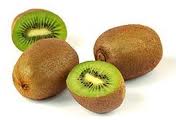 The Kiwi, while typically associated with New Zealand, is actually the national fruit of China. With ancient roots and hundreds of uses, the kiwi is certainly a useful and nutritious fruit. While native to China, the fruit was rather unknown outside this Asian nation until 100 years ago.
The Kiwi, while typically associated with New Zealand, is actually the national fruit of China. With ancient roots and hundreds of uses, the kiwi is certainly a useful and nutritious fruit. While native to China, the fruit was rather unknown outside this Asian nation until 100 years ago.
In 1906, Alexander Allison introduced kiwi seeds to New Zealand after visiting China during a religious mission. The kiwi remained a local fruit to Asia and the Pacific for another 50 years until the first shipment was sent to England during the years following WWII. The kiwi soon arrived in the United States, but commercial production in California did not start until the 1970s. Today, the top producers in order of largest to smallest include Italy, New Zealand, Chile, France, Greece, Japan and the United States. Barely known a century ago, the kiwi has become quite the popular fruit around the world.
Key Nutrients
Kiwi is a great source of vitamin C and fiber. It also offers a high amount of vitamins A and E, as well as magnesium.
Health Benefits
Vitamin A – Vitamin A, when converted into retinaldehyde, is a vital compound for healthy eyes. Furthermore, vitamin A is believed to fight against cataracts, macular degeneration and glaucoma. Vitamin A strengthens the membranes of the human body such as mucous membranes, respiratory, urinary and intestinal tracts. It is also essential for the lymphocytes, or white blood cells, that fight infection once in the body.
Vitamin C – Regular consumption of foods rich in vitamin C helps the body develop resistance against infections and scavenges harmful, pro-inflammatory free radicals. Vitamin C also helps to prevent respiratory problems such as asthma and lung cancer. Vitamin C has been shown to lower blood pressure, and therefore lessen the probability of hypertension.
Vitamin E – Research has shown that vitamin E possesses anti-inflammatory effects that can combat arthritis, rheumatism, asthma, and other inflammatory disorders linked to chronic inflammation. Vitamin E also improves the body’s metabolic function.
Magnesium – Magnesium helps to keep muscle and nerve tissues functioning normal, as well as promotes a proper heartbeat. It also assists in the support of a healthy immune system and keeps bones strong.
Season
The kiwi season lasts from November to May. With this said, a global production allows kiwi to be found in your supermarket year round.
Nutrition Information
Per 1 Fruit (69 grams):
Calories (cKal): 42
Protein (grams): .79
Total Fat (grams): .36
Carbohydrates (grams): 10.12
Fiber (grams): 2.1
Buying and Storing
When buying kiwi, make sure the fruit is semi-soft to the touch and free of blemishes. When storing at home, store kiwi in the refrigerator for up to one week. If the fruit is not fully ripe, feel free to leave it on the kitchen counter until it ripens.
Best Way to Add to Diet
Kiwi makes a great afternoon snack with a bit of roasted nuts. Additionally, add a kiwi to your favorite breakfast cereal, or use it as a layer in a yogurt parfait.
Kiwi Fruit Recipe

 Not Sure What Healthy Foods To Eat?
Not Sure What Healthy Foods To Eat? This week we take a look at one of my favorite healthy foods...the mighty Avocado.
This week we take a look at one of my favorite healthy foods...the mighty Avocado.
No comments yet.